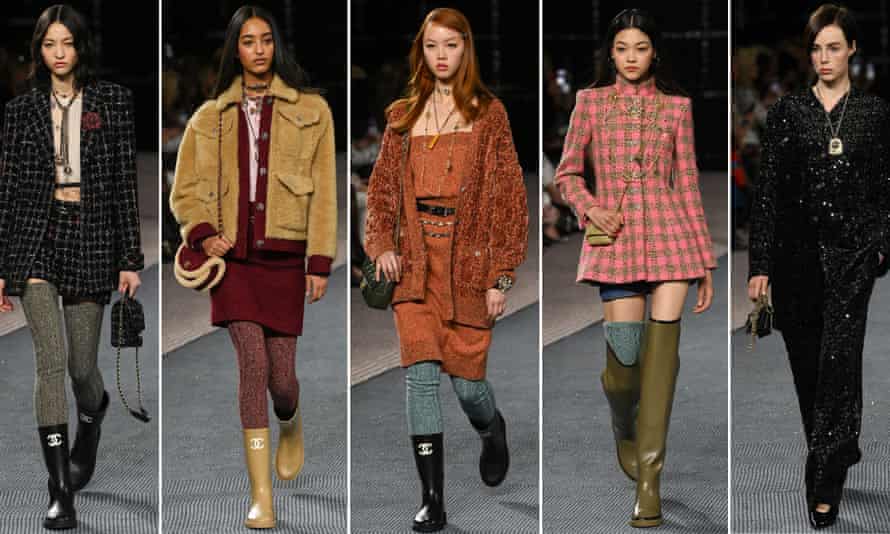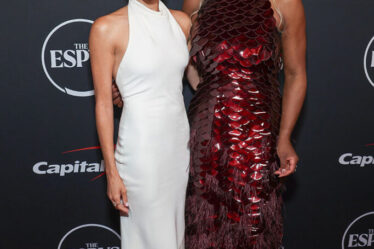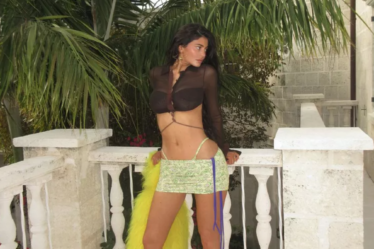
Images and Article from www.theguardian.com.
Coco Chanel borrowed her first tweed jacket from the Duke of Westminster, her lover, in 1924; within a year she had made the look her own, with a tweed skirt suit appearing in her Paris collection for the first time.
In true showbiz style, Paris fashion week ended with one of its greatest hits. A Chanel show in homage to the iconic tweed suit was a surefire crowd pleaser. Clutching the squares of pink tweed sent out as invitations, guests sat on tweed-upholstered seats to view a pageant of tweed dresses, coats and suits. If it was possible to sing along with a catwalk show, the audience would have known all the words.
The designer Virginie Viard said she had been thinking about Coco Chanel who, on walks in the Scottish countryside, would gather ferns, flowers and heathers to use as the blueprint for her next collection’s colour palette. This season, Coco came with a generous side order of Kristen Stewart as Diana, Princess of Wales in Pablo Larran’s recent film Spencer. The bright tweeds on the runway, worn with short skirts and baubled with gilt buttons, recalled the opening scene in which Stewart, whose on-screen wardrobe was made by Chanel, runs across a muddy English field in a tartan tweed blazer and gobstopper pearl earrings.
When Karl Lagerfeld was at the helm, every Chanel show was a 15-minute fashion funfair ride – guests were immersed in a spaceship launchpad one season, a Parisian bistro the next.
Since taking over in 2019, Viard’s shows have been subtle and restrained in comparison. Her designs have proved a hit with consumers, with a bullish average price increase of 71% in three years on handbags reflecting a confident mood at Chanel. This lighthearted show – with jokey touches such as chain-strapped mini hip flasks, and double-C logo wellies and galoshes – saw Viard edge closer to Lagerfeld-era showmanship.
The war in Ukraine has continued to redraw alliances within the fashion industry as it emerged that a Russian designer had been dropped from the Paris fashion week schedule, while the high street retailer Uniqlo announced its intention to keep all 50 stores in Russia open.
Valentin Yudashkin’s digital show was removed from the official Paris fashion week programme after the designer refused to break his silence over the war. In 2008, Yudashkin, who came to prominence in the 1980s dressing Raisa Gorbachev, designed new uniforms for the Russian army, although Ralph Toledano, the president of the Fédération de la Haute Couture et de la Mode said that this was not a decisive factor in the decision.
“We have nothing against the Russian people, but we will not support or accept to have in our calendar those who support his [Putin’s] position,” Toledano told Women’s Wear Daily, describing Yudashkin as “an affiliate of the regime”.
Against an exodus of fashion brands from Russia, Uniqlo bucked the trend by announcing its intention to keep trading in the country. Tadashi Yanai, the CEO of Japan’s Fast Retailing, the parent company to Uniqlo, said: “Clothing is a necessity of life. The people of Russia have the same right to live as we do.” Yanai said that he was opposed to the war, but that business decisions should not be politically motivated. The decision runs counter to a wave of fashion businesses, including Fast Retailing’s Spanish-based competitor Inditex, who have exited Russia in recent days.
Article shared from www.theguardian.com



